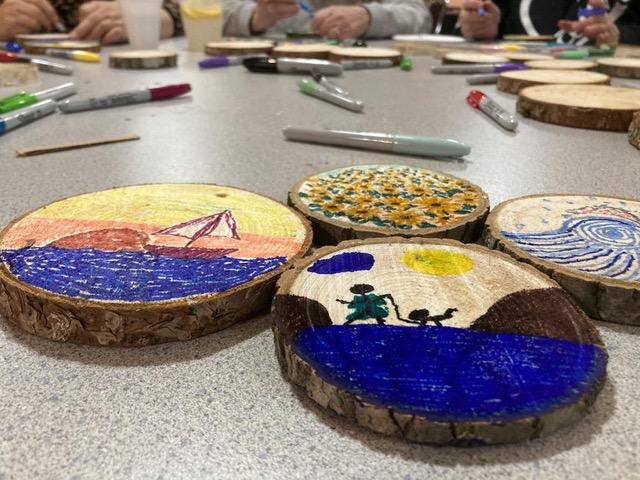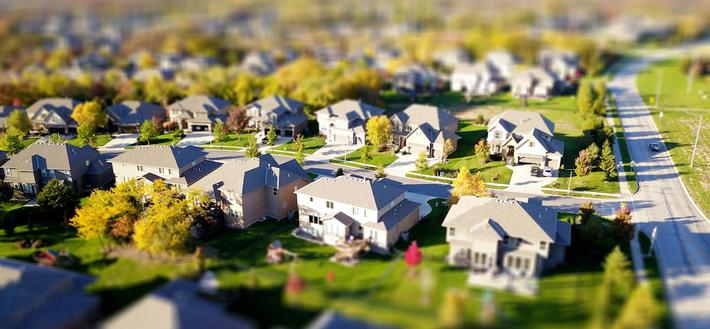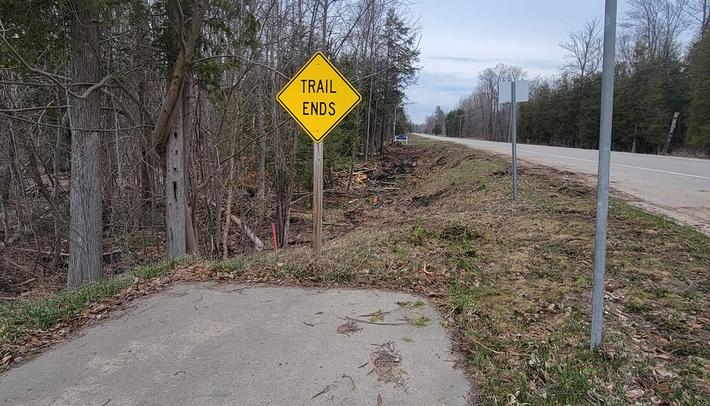Infrastructure Investments Will Set Northern Michigan Up for Success
Guest Opinion
By Sam Inglot | March 23, 2024
Right now, Michigan is going through a rapid transformation. A total of 5,489 infrastructure projects laying ground across both peninsulas will receive more than $45 billion from laws passed under President Joe Biden. The Biden administration is flipping the script in positive ways for lasting change that deserve your attention, especially in rural communities and small towns. At Progress Michigan, we created a website for you to track the progress on these vital infrastructure projects—BidenBuildsMI.com—and to break down where these dollars are going and what they’re being used for.
Rural America continually gets left out of the economic transformation that’s happening across the country. Luckily, historic investments in the American Rescue Plan Act (ARPA), Infrastructure Investment and Jobs Act (IIJ), and Inflation Reduction Act (IRA) are putting shovels in workers’ hands and resources where they need to be so that no community in America lacks the basic needs that folks need to thrive in the 21st century.
As these ambitious infrastructure plans are cemented into the ground (pun very much intended), Michigan has so much to gain. Biden’s plans not only address the long-standing infrastructure gaps in rural communities but will set forward a path for economic resilience. Those of us who live in small towns have often been ignored by policymakers, which has led to the decline of once-thriving areas. And outcomes in Tribal Nations fare even worse, in large part because they don’t often get a say in how federal resources and policies will impact their own communities.
The aging roads, bridges, and utilities in Michigan are an expensive burden for residents and businesses, but things are changing. We can thank IIJ for funding the $14.5 million project to resurface US-31 in Emmet County, $478 million for the Soo Locks, more than $6 million in improvements for the Cherry Capital Airport, $3 million for transportation for the Grand Traverse Band of Ottawa and Chippewa Indians, and countless more projects of all sizes.
These enhancements to our transportation infrastructure will improve safety and accessibility by allowing goods and people to travel on better paths while keeping northern Michigan a place where workers and families can be healthy and thrive.
Expanding broadband access is another game-changer for northern Michigan’s rural communities. Internet access is an absolute necessity for basics like education, healthcare, and business, but also to connect with our loved ones. The Biden administration’s plans to invest in broadband infrastructure promise to bridge the digital divide, empowering residents and businesses with equal access to opportunities.
Out of all 50 states, Michigan received the fourth largest share of IIJ funding from the Broadband Equity Access Deployment (BEAD) Program, according to the Traverse City Record-Eagle. Many of these investments are being felt in Tribal communities as well. As these dollars come to our state, the newly-minted Michigan High Speed Internet Office that Gov. Gretchen Whitmer established will oversee this transformation that will be felt for generations.
Almost every person in northern Michigan has something to say about the state of the housing situation here and the ability to raise a family. What makes these infrastructure plans so promising is that they look at the whole picture, including providing solutions for housing and social services.
Taking a closer look at a couple of these investments: there’s $3.7 million in funding for childcare in Alpena; $864,993 for Tribal housing in Suttons Bay; $220,000 for Kalkaska to replace a filter to get iron out of their water; $270,000 to offer asset limited households assistance to pay their mortgage and utility payments so working folks in Roscommon County don’t lose their homes; and $150,000 for the Traverse City West Middle Child and Adolescent Health Center to provide behavioral and mental health services to students. These critical projects will lay the groundwork for more prosperity across the entire region.
This is a moment to forge rural resilience, meaning that regardless of your ZIP code or income, you deserve basic needs like internet and housing. We’re also ensuring that we leave a better future for our kids. Ultimately, we need federal, state, and local governments alike, including active engagement from community members, in order to make all of these investments a reality and align with our future.
Sam Inglot is the executive director of Progress Michigan, a nonprofit communications advocacy and government watchdog group.
Trending

Walking in an Artsy Wonderland
Michigan Legacy Art Park is hosting the “Raindrops” artwork created by Dewey Blocksma and Patricia Innis at th... Read More >>
Seven Takeaways from Local Real Estate Agents for the Spring/Summer Market
The last few years in local real estate have been akin to what one local agent described as the “wild west,” w... Read More >>
Blazing the Boyne City to Charlevoix Trail
We’re getting ever closer to an interconnected northern Michigan thanks to ongoing work on the Boyne City to Charlev... Read More >>


